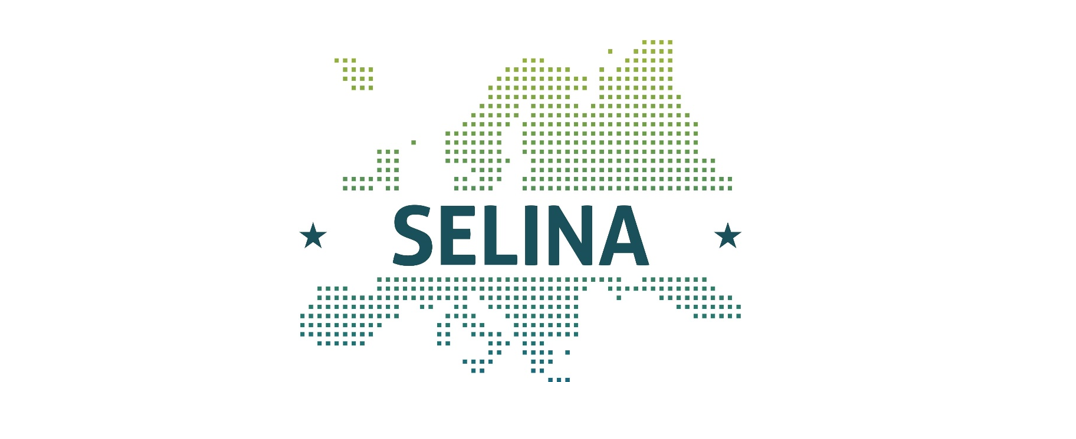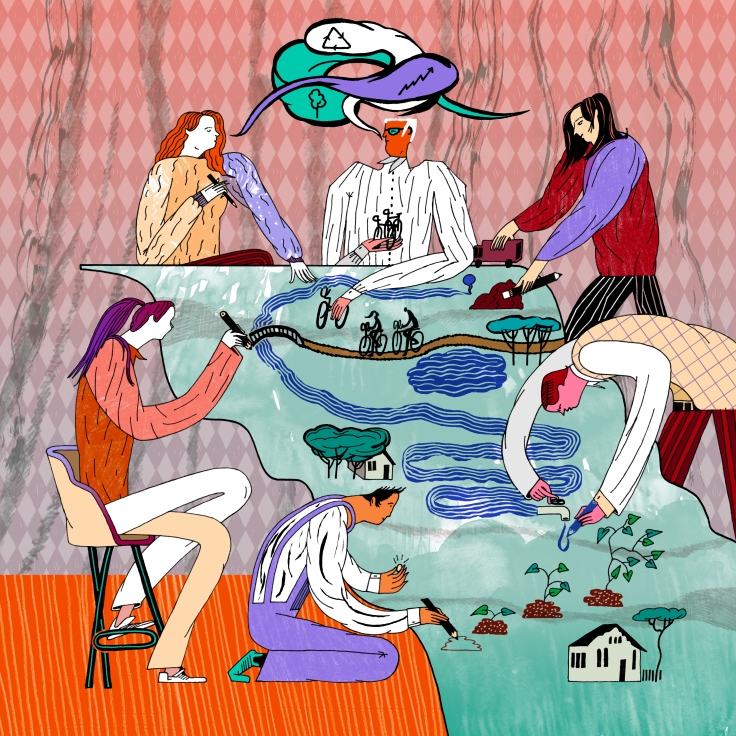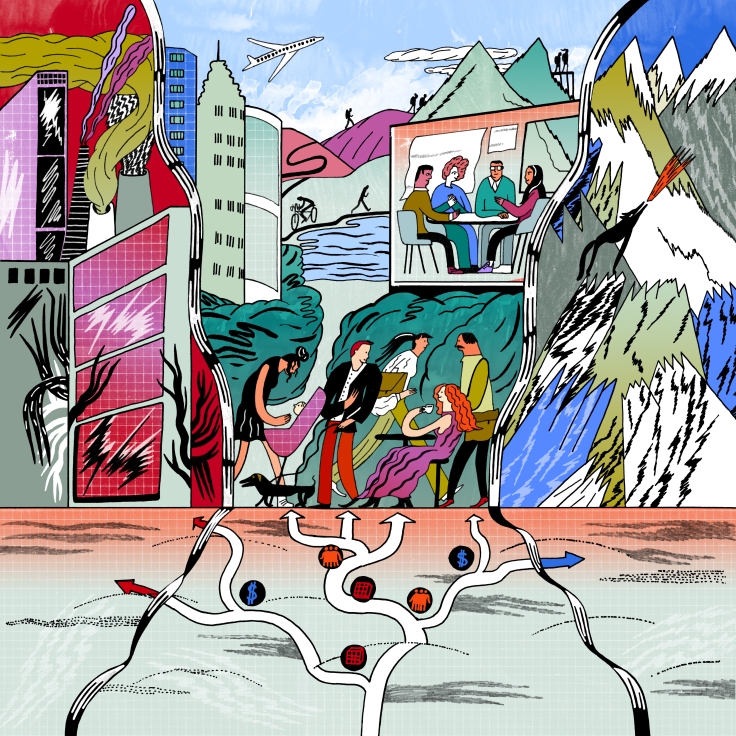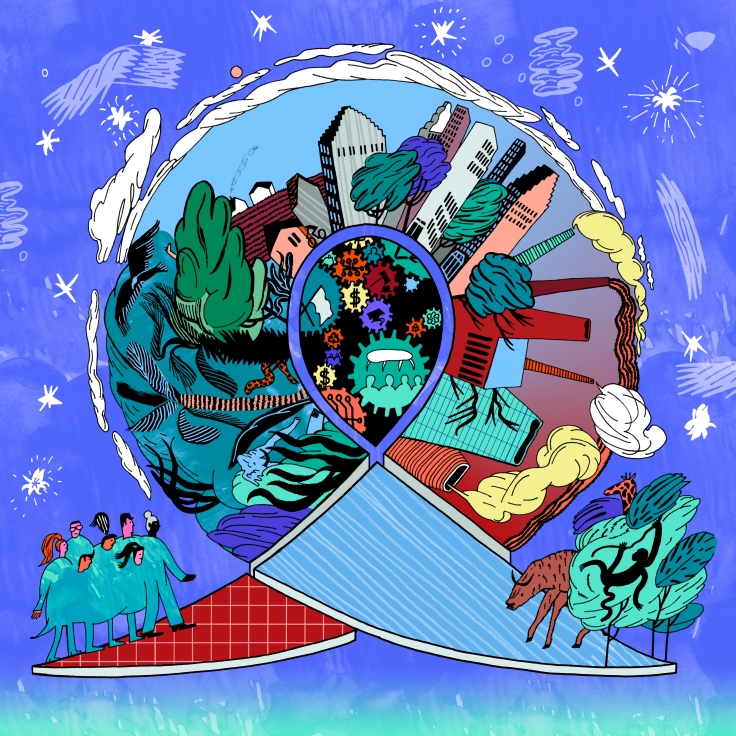SELINA (Science for Evidence-based and sustainabLe decIsions about NAtural capital) is a Horizon Europe project with the mission to provide robust practical information and recommendations on ecosystem services to stakeholders from both the public and private sectors.
SELINA will develop guidance for evidence-based decision-making that supports the protection, restoration, and sustainable use of ecosystems. Through a collaboration of a multinational transdisciplinary network of professionals ranging from ecologists, economists, and social scientists to decision-makers of all levels from 50 partner organisations,from all 27 EU member states, Norway, Switzerland, Israel, and the United Kingdom, SELINA will set new standards for international cooperation to promote ecosystem services (ES) and biodiversity (BD) conservation and enhance ecosystem conditions (EC).
SELINA aims to pave the way towards the transformative societal change required to achieve the ambitious goals of the European Biodiversity Strategy 2030 and the Green Deal. Transformative or transformational change refers to “a fundamental, system-wide reorganisation across technological, economic and social factors, including paradigms, goals and values” (IPBES). While not an entirely straightforward or simple endeavour, transformative change requires collective knowledge and broad cooperation across different actors or topics.
One of the initial tasks of the project has been to identify “seeds of change”—examples of successful integration of nature and ecosystem services into various programmes, projects, initiatives, and processes. These initiatives, possessing transformative potential, actively challenge and seek to reshape the existing social, economic, political, and technological frameworks. They do so by redefining the understanding of human-nature interactions, altering market dynamics or conditions, and modifying decision-making procedures in both the public and private sectors. Additionally, many of these initiatives originate from grassroots and community efforts, demonstrating the power of local action in driving systemic change and fostering sustainable practices.
The search for the “seeds of change” in SELINA is connected to the “Communities of Practice”, networks of actors and stakeholders who share a common concern, a set of problems, or an interest in the topic of ecosystem services. In Czechia, we promote this CoP on ecosystem services through the National Platform for Ecosystem Services (NPES).
At the second and third NPES meeting, we developed synergies between NPES and SELINA and designed participatory discussions in the form of a World Café and round tables on the use of the ES concept in practice, including barriers, successes and visions. The participants were invited to think within the broader context of transformative qualities of projects and identify existing or emerging “seeds of change”.
The participants proposed a longer list of projects and initiatives, but in the round-table discussions, we encouraged them to select only one or two they found the most inspiring. Here, we would like to share what the NPES participants identified as “seeds of change”; we consider these projects, programmes or initiatives to be really inspiring and going beyond the common practice. Below are the leading initiatives, complemented by a short summary description from their websites. What they share are the seeds of societal transformation through care for nature and enhancement of ecosystem services.
Planting for the Future (Czech Environmental Partnership)
This initiative wants to connect all those who plant trees, whether they are municipalities and cities, associations, state institutions, companies, schools, farmers or landowners, volunteers and donors. It aims to achieve the goal of planting 10 million trees in areas outside of forests and woods over the next 5 years. This would help to cool down Czech cities and support the resilience and adaptation of the Czech landscape to climate change. The initiative provides finances for the planting of trees by communities, provides advice and guidance and aims to change legislation. This initiative has helped communities to improve the landscape together.
https://www.sazimebudoucnost.cz/
Farmer School – Vocational School of Organic Agriculture
The only school of organic and biodynamic agriculture in the Czech Republic that offers a comprehensive program of practical training on organic farms at home and abroad. The school strives for sustainable agriculture that does not plunder but heals the landscape; agriculture that thinks about future generations. Its graduates are expected to disprove economic clichés and build up organic farms, showing both environmental and financial sustainability. The farmer school educates and supports young farmers who have the desire to establish new farms and thus contribute to the restoration of natural farming, healthy landscapes and rural life.
https://farmarskaskola.cz/farmer-school-vocational-school-of-organic-agriculture/
Fem4Forest – Forests in Women’s Hands
The main objective of the Fem4Forest Interreg Danube project was to strengthen the forestry sector at local, regional and interregional levels through the increased involvement and ability of female actors by supporting their equal market presence and competences in the Danube region. The project offers a new and innovative approach to training and mentoring, with the aim of encouraging and enabling a more active role for women in all segments of the forestry sector. The project developed tools (e.g. training and mentoring programmes) and transferred examples of good practice amongst countries.
https://dtp.interreg-danube.eu/approved-projects/fem4forest
The French Green Budget
The Green Budget assesses the environmental impact of the State budget by identifying budgetary and tax expenditures that are favourable and unfavourable to the environment. It also reports on the budgetary aspects of ecological planning. The 2024 Green Budget mirrors the unprecedented rise in resources allocated to ecological planning. This increase will focus on several areas, including the protection of biodiversity, as part of the National Biodiversity strategy, support for agricultural transition, carbon diagnostics, forest protection and enhancing quantitative and qualitative water management. The State’s green budget is an essential tool in ensuring that France is on the path towards ecological transition.
The final list of initiatives will include examples from all European countries. The SELINA team will gather all the initiatives and select approximately 30 examples for further analysis. This will provide EU-wide inspiration towards transformative, societal and sustainability change. Hopefully, when nurtured and cultivated, seeds of change can lead to significant positive changes in creating a sustainable and thriving world.
Author: Davina Vačkářová
You can follow the project on the web and on social media:













Leave a comment